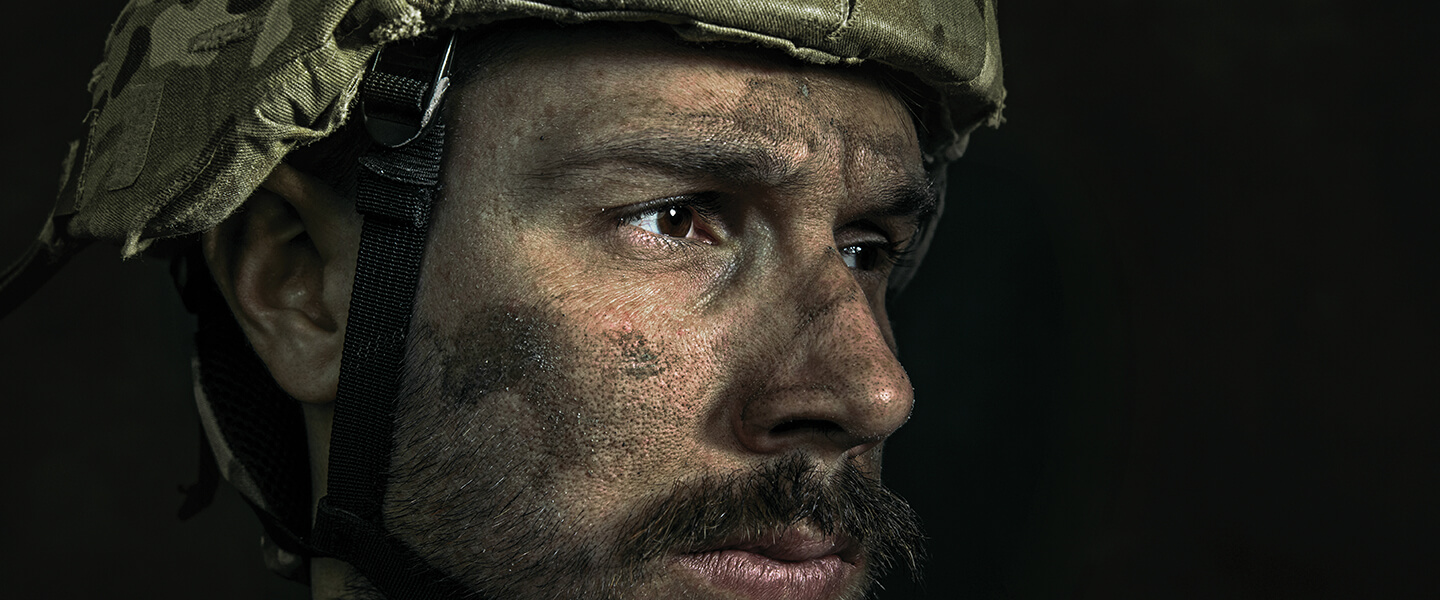Small Preliminary Trial of Psychoactive Drug Ibogaine Yields ‘Initial Evidence’ for Powerful Therapeutic Potential in Traumatic Brain Injury
Small Preliminary Trial of Psychoactive Drug Ibogaine Yields ‘Initial Evidence’ for Powerful Therapeutic Potential in Traumatic Brain Injury

In an exploratory and preliminary clinical test, a team of researchers at Stanford University has obtained “initial evidence” suggesting that a psychoactive compound called ibogaine, when co-administered with magnesium, “could be a powerful therapeutic” to safely treat a variety of psychiatric symptoms, including PTSD, major depression and anxiety, and suicidality, all of which may emerge following traumatic brain injury (TBI).
Ibogaine, derived from the root bark of a shrub, has been used for traditional religious and healing purposes in Africa for centuries. Sometimes called an atypical psychedelic, the Stanford researchers prefer to classify it as an “oneirogen,” based on a Greek word that describes its main psychotropic effect: therapeutic dosing leads to dreamlike states of consciousness that persist for several hours and sometimes even longer. Proponents of the compound say it facilitates self-reflection and self-evaluation. These are qualities that in recent years have been attributed to psychedelic compounds such as MDMA, psilocybin, and LSD. Like those agents, ibogaine since 1970 has been listed by the U.S. Drug Enforcement Administration as a Schedule I compound, with no officially recognized medical use and with a “high potential for misuse.”
Subsequent experience suggests that ibogaine is not addictive, although it does have powerful and potentially harmful effects on users. Until now little academic research has been conducted into its possible therapeutic value. The paucity of research is directly due to its illegality in the U.S., although the drug can be used legally in Mexico and Canada.
Ibogaine is a drug of interest to some researchers for several reasons, the chief of which is that those who suffer from traumatic injuries to the brain are often not helped, or helped only partly, by existing FDA-approved therapies. TBI is considered the “signature injury of U.S. military veterans from recent military conflicts, most often caused by blast exposure,” note the authors of the paper reporting results of a small trial with ibogaine just published in the journal Nature Medicine. Lead author of the study was Nolan R. Williams, M.D., of Stanford, a BBRF Young Investigator in 2018 and 2016, and 2019 winner of BBRF’s Klerman Prize for Exceptional Clinical Research. Jennifer Keller, Ph.D., a 2009 BBRF Young Investigator, was among the co-authors.
First-line therapies for conditions often arising following TBI—cognitive rehabilitation, psychotherapy, and medications that target specific symptoms—tend to be less effective for veterans compared with other populations, the Stanford team says, with remission rates ranging from 20% to 40% following treatment. “Most concerningly, veterans make up 20% of U.S. suicides,” they note, although they account for only 6% of the population. Exposure to blasts can result in changes to the brain, including brain structure, functional connectivity, cerebral blood flow, and white matter damage. TBI is also linked with cognitive problems involving memory, attention, neural processing speed, and executive function. These can disable sufferers.
“No drug to date has been able to alleviate the functional and neuropsychiatric symptoms of traumatic brain injury,” Dr. Williams notes. “There were a handful of veterans who had gone to a clinic in Mexico and were reporting anecdotally that they had great improvements in their lives after taking ibogaine. Our goal was to characterize those improvements with structured neurobiological assessments.”
The Stanford researchers entered into a collaboration with a company called Ambio Life Sciences, which had received a grant from a nonprofit called Veterans Exploring Treatment Solutions (VETS), Inc. to test ibogaine in a group of 30 male volunteers who, independently of the university, had enrolled themselves in what is called an open-label trial to be conducted at a clinic in Tijuana, Mexico. In such trials, there is no “blinding”; participants know that they will be receiving a particular treatment. There is no placebo given for comparative purposes, and no control group. The Stanford team conducted pre-trial assessments and brain scans of the 30 volunteers before they traveled to Mexico for their treatments, and assessed them again within days after the treatments, once they had returned to the U.S., as well as one month following treatments. That data continues to be under review and will be the subject of subsequent papers.
All of the participants were males who had served in U.S. special forces and had suffered mild to moderate traumatic brain injury which impaired their functioning. These injuries occurred an average of 8 years prior to the trial. Many participants had related disorders: 23 met the criteria for PTSD, 14 for an anxiety disorder, and 15 for alcohol use disorder. Over their lifetimes 19 had exhibited suicidal behavior and 7 had attempted to end their life.
Prior to treatment with ibogaine the 30 participants were found to have an average rating of 30 on a WHO disability scale, which translates into “mild to moderate” disability. “These men were incredibly intelligent, high-performing individuals who experienced life-altering functional disability from TBI during their time in combat,” Dr. Williams said. “They were all willing to try most anything that they thought might help them get their lives back.”
After being administered ibogaine along with concurrent injections of magnesium to reduce the potential impact on heart arrhythmia and other known potential cardiac side effects, “participants showed a remarkable reduction in symptoms” of disability, PTSD, depression and anxiety,” the team reported. The benefits were sustained at the 1-month follow-up. In fact, disability measures “continued to improve and psychiatric symptom remission and response rates remained high” after 1 month, the team noted. “Neuropsychological testing revealed areas of improvement after treatment particularly in processing speed and executive function, without any detrimental changes observed. With regard to safety, no serious or unexpected adverse events occurred and management of adverse effects was uncomplicated.” Such adverse effects included nausea, headache, and anxiety. Motor effects were uncommon and resolved within 24 hours.
The disability score of a typical participant declined from 30 to 19.9 in the assessment immediately following treatment; this further plunged to 5.1 after one month (“no disability”). Mean percentage reduction in PTSD, depression and anxiety symptoms was 81%; 93% were “responders” and the remission rate was 83%. Suicidal ideation, present in 47% pre-treatment, fell to 0% just after treatment and 7% after one month. The tests of neurocognitive functioning included a finding that reaction time slowed significantly post-treatment, which may translate into a reduction in impulsivity among those in whom this was a problem. Impulsivity is associated with relapse after substance-use treatment and also with suicidality.
Because the trial was not blinded and there was no control, it was impossible for the researchers to estimate the magnitude of the placebo effect—which is present in all trials. In this case, it might have been powerful, the researchers note, since the participants had elected to travel internationally to be treated and were not being helped sufficiently by any prior treatments (which they ceased prior to the beginning of the trial). Thus, the factor of “expectancy,” of wanting and expecting a positive result, was no doubt present. Researchers have long understood the special challenge of clinical research involving psychedelic compounds: those who ingest them know they have received a “treatment”—there is no known neutral, non-psychoactive agent that effectively mimics a psychedelic drug experience.
Another important factor in considering the strong results is the potential impact of “complementary therapies” which all participants received as part of the trial in Tijuana. Each participant was paired with a licensed therapist experienced in coaching patients undergoing ibogaine treatment. Each was coached prior to the administration of the treatment, during the treatment while the dream-like effects of ibogaine were being experienced, and following treatment—the next day, when coaches and patients discussed the processing of their emotions and how to interpret and “integrate” insights they may have gained from the treatment into their everyday lives.
Further study of the data from the brain scans made before and after the treatments will lead to additional papers by the team. Dr. Williams hopes that results of subsequent studies with more diverse patient populations including those with more severe TBI, will reveal “a host of different brain areas” that may be involved in any therapeutic impact of ibogaine—data that might “help us to treat other forms of PTSD, anxiety, and depression that aren’t necessarily linked to TBI.”



